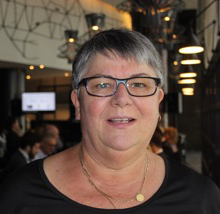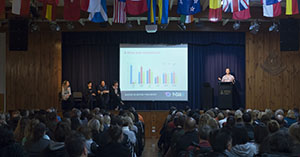Our panel of sex and education experts tackles some common questions …
Can we tell our children too much about sex?
“Absolutely not. Kids take in what is relevant to them. If you are armed with information you can make reasoned decisions. It’s a concern of parents that knowing what sex is will ruin their kids’ innocence but that makes sex shameful, rather than it being seen as an everyday thing that happens when you get older. Kids may then access pornography and then see things like double penetration, for example, as a form of sex. That is worse than parents providing kids with information so they can make reasoned decisions. US research shows that providing information about sex actually delays the onset of a child’s first sexual experience, and if kids are already sexually active it promotes safer sex practices.“ — Dr Debbie Ollis, senior lecturer in education at Deakin Uni
How can I support my child when it comes to sex and the online world?
“I’ve got these four Ps for social media. Never post anything online that you wouldn’t want your Parents, the Police, a Principal or a Predator to see. It’s as easy as that. Pornography is now the leading sex educator in Australian schools by far. It’s much more violent than it used to be, too. Please don’t for one second think there’s anything you can do to stop them from seeing it because – newsflash – there isn’t. What’s sad about this though is the research shows the impact that violent pornography has toward changing our kids’ attitudes about sexual harassment. It suggests that it’s OK to hold a girl down for sex; it’s OK to be callous; it’s OK to be abusive. My greatest fear is that we’re socialising boys and some girls into a very brutalised version of masculinity. If ever there was a website that you need to dive into on the subject of online pornography, it’s ‘’It’s time we talked” (www.itstimewetalked.com.au). It’s a genius website to equip parents with the skills, knowledge, and the strategies to deal with this issue. It’s not a matter of if, it’s when they see it, and you need to be ready. Do I wish it were different? Of course I do, but this is our reality.” — Dr Michael Carr-Gregg, child and adolescent psychologist
How do I keep my kids safe?
“Give them information. Have condoms in the bathroom where teenagers can get them if they need them. You don’t have to give them to your child yourself, but it lets them know that safe sex is important. And make it clear that, if something goes wrong, there is nothing so awful that your child can’t tell you. Let them know that we all make mistakes and that’s OK and I am the parent who can help. Don’t use fear, shame and danger. Kids tell us the messages they often get is that sex is dangerous, shameful and negative. Tell them that sex is a wonderful thing when you are with someone you love. The aim of sex education is not about preventing sex but making sure it is respectful and enjoyable.” — DB
My kids don’t want to talk about sex to me do they?
“It depends on the parent. In every focus group of five or six teenagers that I did recently, one kid would go “but why wouldn’t you talk to your parents? I can talk to my parents”. So it’s the way the conversational tone is set. If parents approach this topic along the lines of talking about the birds and the bees and the biological facts, that makes things awkward. If there is a broader conversation about relationships, human communication and gender, how you ask for what you want, how you know what someone else wants, that can open up conversations where you don’t have to focus solely on sexual intercourse.” — Professor Catharine Lumby, educational author
What do I do if my kids talk about sex and I don’t know the answer or I’m not comfortable answering a question?
“Children ask questions around sex because they are just curious and it’s best to deal with their questions in a matter-of-fact way. Often when kids ask questions about sex we go to the worst-case scenario and worry about why they are asking this and that. If you don’t know the answer or you need a bit of time to work out how to respond,
say “that’s a good question, let me think about it and come back to you”. You don’t have to have the answers there and then but show your child that you have heard them. Or show them respect by inventing a related scenario, bouncing it off them and asking their advice and what they think about it.” — CL
What can I do now?
“Understand the issue from both your own and your child’s perspective. Discuss your family values, beliefs and hopes early. Acknowledge that children are developing intimate and sexual citizens with rights and responsibilities to care for themselves and others. Take a non-judgmental approach to your child’s desire for sexual knowledge and understanding about intimate relationships. Model health and respectful relationships in your home and highlight the value of communication in all relationships. Actively discuss the need for open conversations around choice, negotiation and consent for all types of intimate relationships, whether they are sexual or not. Open up discussions that explore the range of feelings and emotions that occur around intimate and sexual relationships. When talking with children and young people about intimate relationships, we need to teach them that intimacy and sexuality is about sharing love, pleasure and ourselves!” — Linette Etheredge, director of Let’s chat about it! letschataboutit.com.au



